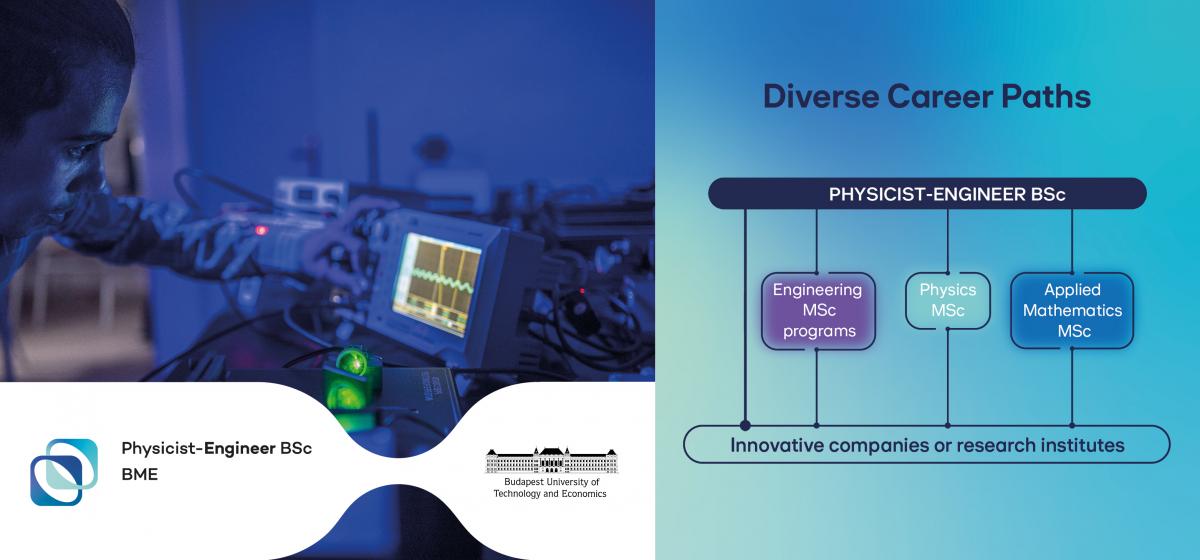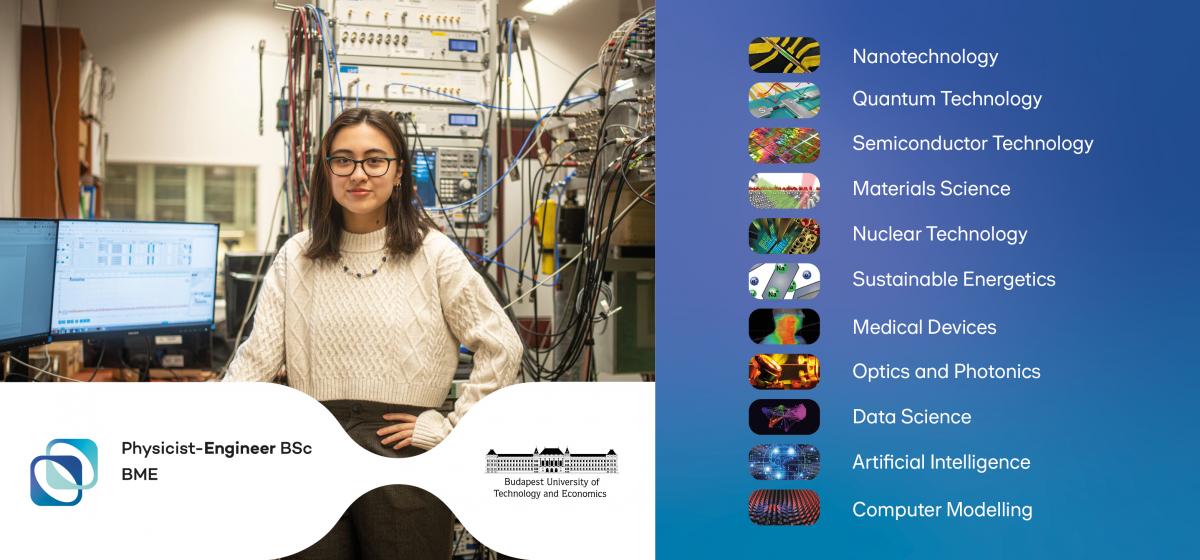News feed
BME launches new Physicist-Engineer BSc in response to market trends
2023. 01. 05.Quantum technology, sustainable energy, and artificial intelligence in the focus of innovative companies.
Sustainable energy, artificial intelligence and quantum technologies are just some of the areas that will shape the economic and social development of our future – and are unthinkable without technologies blending engineering and physics. In response to a shortage of professionals at the most innovative companies in Hungary and abroad, the Budapest University of Technology and Economics (BME) launches Hungary's first, English-language Physicist-Engineer programme.

The number of researchers employed in Hungary doubled between 2009 and 2019. Spending on R&D is currently 1.64% of the GDP, putting the country in the mid-range of the European Union. However, the return on these investments depends to a large extent on the market environment for R&D. According to statistics published by the National Research, Development and Innovation Office in 2019, large enterprises employ the most researchers in the corporate sector in Hungary (59%), and a year earlier corporate research centres invested more than 490 billion HUF in R&D, which corresponds to more than 76% of the annual expenditure.
In Hungary, R&D is predominantly carried out by the corporate sector, and the success of the projects is influenced by global market needs. In response to this trend, BME is launching a Physicist-Engineer BSc degree programme in September 2023. The aim is to train professionals with both engineering and scientific expertise to meet real market needs and provide creative responses to the scientific and technological challenges of our time.
The long-term economic and social role of R&D and innovation is highlighted in the World Intellectual Property Organisation's (WIPO) Global Innovation Index 2022. This predicts a wave of Deep Science innovation over the next decade that could revolutionize innovation in the fields of healthcare, food and environmental protection, through biotechnology breakthroughs, advances in nanotechnology and new interdisciplinary research. "BME's new Physicist-Engineer programme will address the exciting challenges of the 21st century with a focus on nano- and quantum technologies, data science, sustainability and energetics," highlighted Dr Tibor Czigány, Rector of BME.
Oil and gas production, nuclear fuel processing, manufacturing of optical fibres, lighting, office machinery, cars, ships, and weapons are all industries that rely heavily on innovative technologies based on physics and engineering expertise. “There is a high need for the system-oriented thinking of physicists at Bosch. Having a deep understanding of our environment via learning physics is a good starting point for a successful career. There are several fields where physicist-engineers are welcome, like electromagnetic interference (EMC), artificial intelligence (AI), data science, reliability of products, materials science and optics.” emphasized Zoltán Karaffy, Head of Department at Bosch.
In the development of the BME Physicist-Engineer programme, the feedback on current market trends provided by successful Hungarian and global industry players in R&D was a key factor, enabling the programme to provide fast and efficient job entry. Bosch, Semilab, 77 Elektronika, Femtonics, Furukawa Electric, Magnetec and Paks II are major corporations where physicist-engineer students can start their careers as interns during their studies, and in many cases work with alumni of the University. "There are no repetitive workdays in R&D as there are always new challenges presented − the semiconductor industry is all about continuous technological development. Our metrology systems are also created through the exciting collaboration of people in different fields. The understanding and collation thereof require complex knowledge" said Tamás Szarvas, Head of Semilab's Optical Scattering Microscopy Department and former student at BME. Semilab is one of the innovative metrology supplier companies, where qualified personnel in physics and engineering can be involved in various phases of measuring equipment development. The Physicist-Engineer bachelor's programme develops both scientific knowledge and engineering skills, leading to a combined expertise to meet market needs.
Further information about the training programme: https://fizikusmernok.bme.hu/en

BME-TTK: Rector's Office, Communication Unit
Photos: BME TTK
